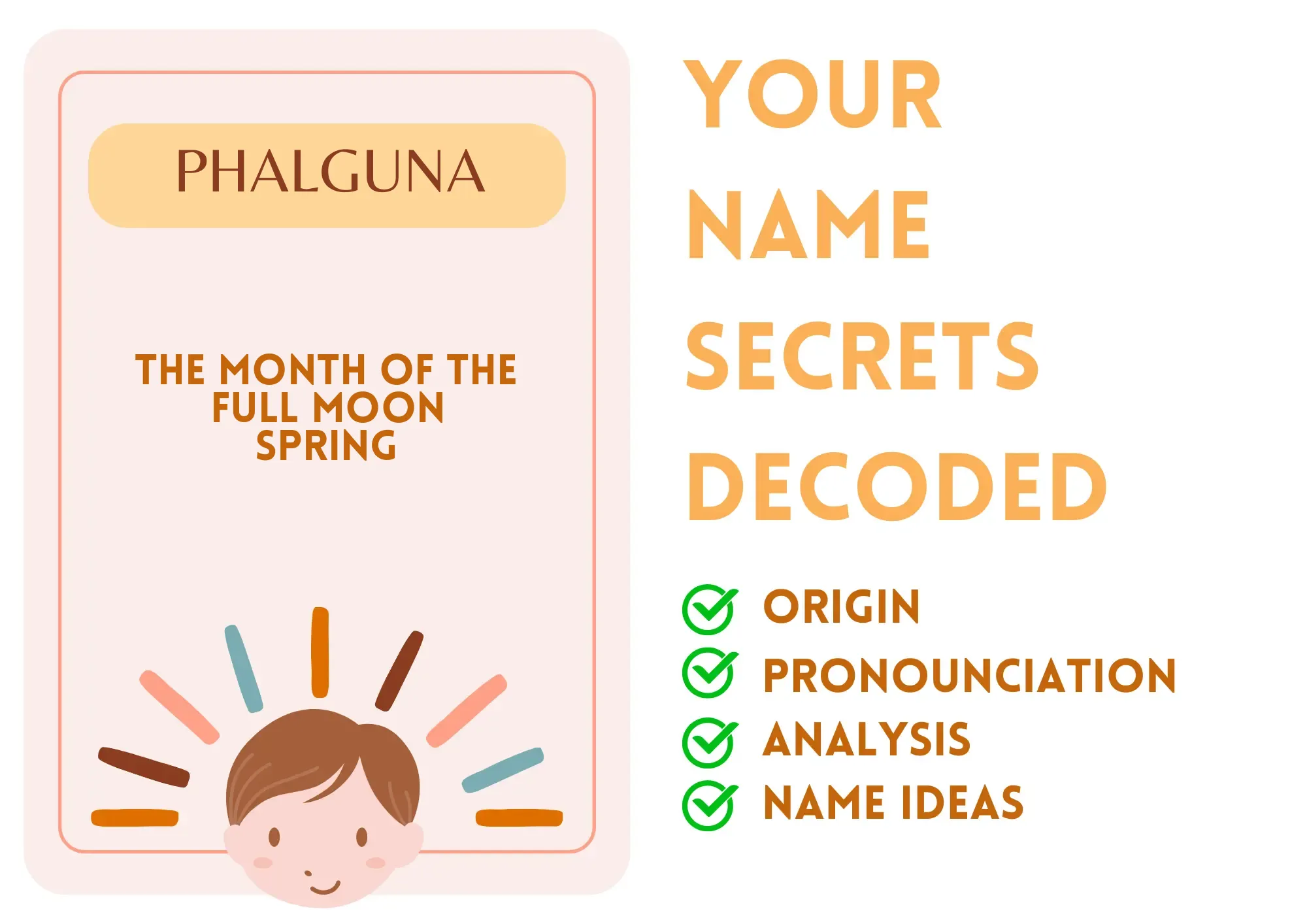
Phalguna
Phalguna is a name of profound significance rooted in Indian culture, particularly within Hinduism. It is derived from Sanskrit, referring to the Hindu calendar month that corresponds to the period of February-March. The name symbolizes the blooming of flowers and the arrival of spring, embodying renewal, fertility, and prosperity.
This name is predominantly masculine and is used in India and among Indian communities. It also has mythological ties, as it is sometimes associated with Lord Krishna, who is known for his playful and jovial nature during this time of year.
The name Phalguna resonates positively, evoking feelings of warmth, growth, and vitality. Its unique sound and cultural depth make it appealing to many parents seeking a name that reflects nature and renewal.
Basic Information
Gender: Boy
Sounds Like: phahl-goo-nah
Pronunciation Explanation: The name is pronounced with a soft 'ph' sound as in 'phone', followed by 'ahl' like in 'fall', a hard 'g' as in 'go', and ends with 'nah'.
Summary and Meaning
Meaning: the month of the full moon (spring)
Origin: Phalguna has Indian origins, grounded in the Sanskrit language used historically in Hindu texts and astronomy.
Usage: Phalguna is traditionally a masculine name, representing strength and renewal, often bestowed upon boys born during the month it signifies.
Name Number (Chaldean)
Name Number (Pythagorean)
Name Constellation (Nakshatra)
Name Zodiac Sign (Rashi)
Religious and Cultural Significance
Religion: Hindu
Background: In Hinduism, Phalguna is tied to cultural and seasonal events, such as festivals celebrating the onset of spring and the importance of nature’s renewal.
Cultural Significance: Phalguna is favored among parents for its significant connection to the cycles of nature, embodying themes of fertility and growth. It reflects the joyous spirit associated with spring festivals.
Historical Significance: Phalguna has historical relevance as it denotes the Hindu calendar month recognized for its festivals and celebrations—signifying rebirth and agricultural prosperity.
Popular Culture
Literature and Mythology: The name can be found in various Hindi texts and literature referring to spring celebrations and festivities.
Movies and Television: Although not frequently used for characters, Phalguna can occasionally appear in Indian cinema that involves themes of nature and seasonal festivities.
Feelings and Perceptions
Perception: Phalguna is perceived positively, often associated with growth, vitality, and new beginnings. Its rarity also adds a unique charm, appealing to parents looking for distinctive names.
Positive Feelings: Array
Negative Feelings: Array
Practical Considerations
Ease of Writing and Calling: Phalguna is relatively straightforward to write, consisting of seven letters, though it may be challenging for those unfamiliar with Hindi phonetics to pronounce correctly at first.
Common Typos and Misspellings: Phalgun,Phaluna,Falguna,Palguna
Common Nicknames: Phal,Guna
Compatibility Analysis
Famous Persons Named Phalguna
No results found for Phalguna.
Related Names
Similar Sounding Names:
Palak,Pahal,Pavitra